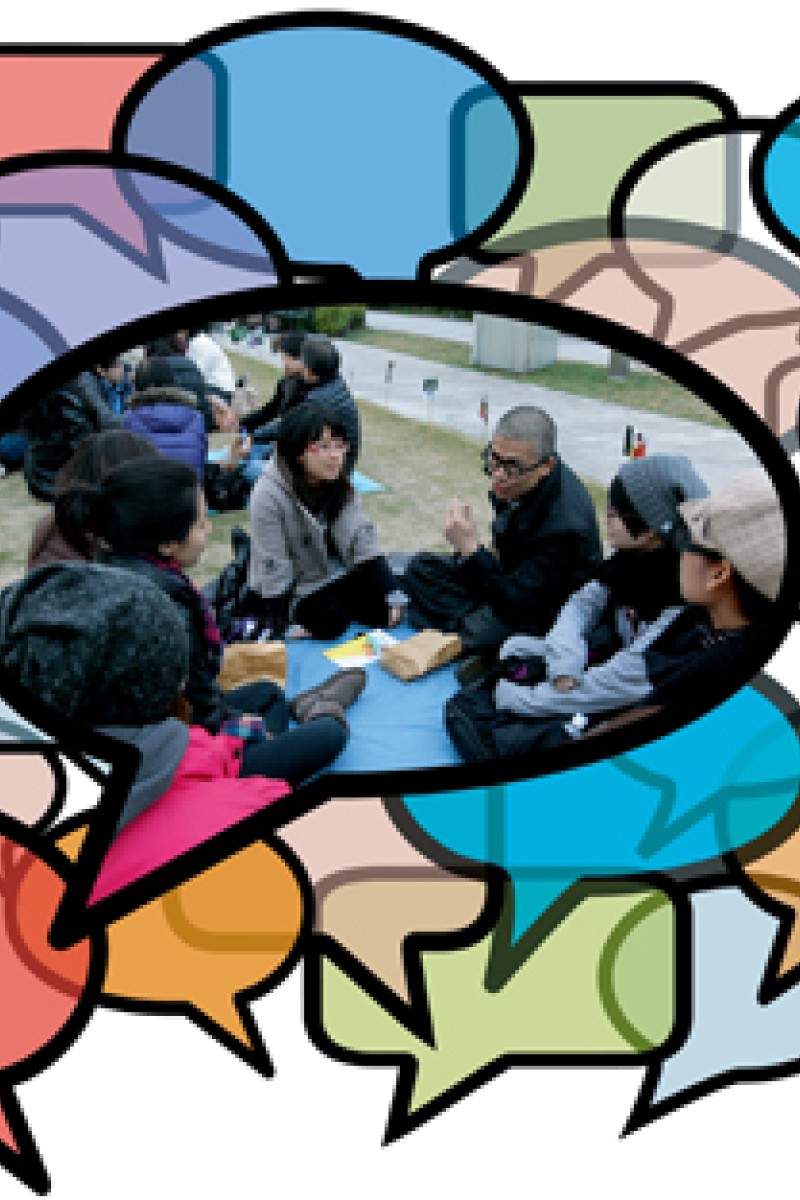 Stanley Wong (main photo) and Hai Sing (far right) were in demand as 'human books'.
Stanley Wong (main photo) and Hai Sing (far right) were in demand as 'human books'.A Human Library was set up at the West Kowloon Cultural District, a fitting setting for a cultural exchange organised by Make a Difference (MaD), a Hong Kong activist youth group. The lawn alongside the boardwalk was packed with people, sitting cross-legged on blankets laid out on the ground.
Similar to a conventional library, the Human Library lets borrowers loan "living books" - that is, a person is loaned for the exchange of information. These people have usually experienced something extraordinary, or they have special knowledge on certain subjects. For example, cancer survivors and school principals would both have stories to share.
On Saturday, individual borrowers and small groups typically loaned a living book for 30- to 45-minute sessions. Rather than a simple Q&A, in which participants just fire off questions, living books try to encourage dialogue.
"When I interact with the people, I try to find out a little about them first," says "human book" volunteer Stanley Wong Ping-pui, a Hong Kong designer known as anothermountainman. "I try to understand a little about them, and that helps the way I communicate. It's really a reciprocal exchange."
As part of its Public-in-Residence programme, MaD organised two Human Library events on two weekends. More than 40 books - including filmmakers, artists, former drug addicts, architects, social workers and school principals - were on loan at the West Kowloon Waterfront Promenade.
The books were seldom left "on the shelf". Many were borrowed for an extended period of time. In fact, if this were a traditional library, many "readers" would have incurred late charges. But that's just further validation of the interest in the books and the concept of the Human Library.
The idea was founded by five friends in Copenhagen more than a decade ago. It grew out of an anti-violence youth group they started after a mutual friend was stabbed at a nightclub.
In 2000, Stop the Violence made its way onto a bigger, and more commercial, platform at the Roskilde Festival in Denmark, one of Europe's biggest music festivals.
What transpired was fascinating: people from all walks of life mingled, and, according to humanlibrary.org, "something special was in the air". A policeman was speaking with a graffiti artist, a football fan with a feminist. People were "reading each other", and the Human Library was born.
Currently, there are no permanent Human Libraries in Hong Kong. The public library does not offer such a service. However, Christian youth organisation Breakthrough, which teamed up with MaD to bring Human Library to West Kowloon, has organised events in the past. It plans on running two or three more this year.
